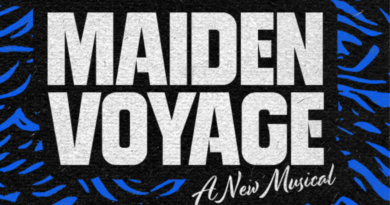Inside The Jamie Lloyd Company’s Game-Changing West End Reign
Let’s start with the jaw-dropping figures. The final week of MUCH ADO ABOUT NOTHING not only became the highest-grossing week ever for a play in West End history—it also capped off a five-week streak of consecutive box office records. That’s not just impressive; that’s unprecedented. And it’s not an isolated case. The company’s earlier ROMEO AND JULIET (also Hiddleston-fuelled) claimed the highest grossing title at the Duke of York’s Theatre.
But this isn’t merely a story of commercial triumph. It’s a case study in what happens when you marry A-list star power with bold directorial vision (Jamie Lloyd, of course), and then sprinkle in radical ticketing reform that doesn’t punish the bank account. It’s theatre not just for the few, but the many.
The Jamie Lloyd Company: One Year, Five Phenomena
It’s easy to forget that this MUCH ADO marked just the end of The Jamie Lloyd Company’s first year as an independent outfit. And what a debut year it’s been. Across five productions—THE EFFECT, ROMEO AND JULIET, SUNSET BOULEVARD, THE TEMPEST and MUCH ADO ABOUT NOTHING—more than 600,000 people have taken their seats in London or New York. That’s the kind of audience reach that would make even the National Theatre blush.
But beyond the sheer scale, it’s the spirit of the programming that’s worth applauding. Lloyd has never been one to play it safe, but this year has shown a fierce commitment to both artistic reinvention and democratic access.
The £25 Revolution
Now, here’s the real quiet revolution—the ticketing strategy. Over a third of all tickets across the Jamie Lloyd Company’s recent productions were sold at £45 or less. More impressively, every single show included a tranche of £25 tickets available on every level of the theatre. That’s right—no more nosebleeds by default if your wallet’s on a diet.
These £25 seats weren’t just a gimmick. They were specifically reserved for under-30s, key workers, and those receiving government benefits. In other words, people who have historically been priced out of premium theatrical experiences.
In ROMEO AND JULIET alone, 5,000 seats were ring-fenced for this purpose. For the Shakespeare season at Drury Lane, that number ballooned to 25,000. And here’s the cherry on top: 78% of ticket buyers through LW Theatres during the season were first-time bookers. Let that sink in—nearly four out of five people had never booked with them before.
This is theatre that isn’t just filling seats. It’s building future audiences.
A Different Kind of Star Power
Of course, much of this momentum rides on the kind of star casting that makes headlines. Tom Hiddleston, that brooding Loki of both Marvel and Donmar Warehouse fame, brings a magnetism that turns Elizabethan banter into box office gold. Hayley Atwell, meanwhile, brought a Beatrice equal parts fire and finesse. But it’s the direction of Jamie Lloyd that transforms celebrity casting from stunt to substance.
His signature minimalist aesthetic—stripped-back sets, punchy pacing, raw emotional honesty—has become something of a calling card. It’s no coincidence that SUNSET BOULEVARD is currently making waves on Broadway. Lloyd has found a way to translate high-concept into high-impact, and the West End is all the better for it.
EVITA With A Twist
And just when you think they might take a breather—cue another headline-grabbing announcement. This summer, Lloyd Webber Harrison Musicals and The Jamie Lloyd Company are teaming up for a revival of EVITA at The London Palladium. And no, it’s not your mum’s EVITA. Starring Rachel Zegler (yes, the breakout star from Spielberg’s West Side Story) and Diego Andres Rodriguez, this production promises to inject the Tim Rice and Andrew Lloyd Webber classic with fresh energy.
It runs from 14 June to 6 September and—true to form—5,000 £25 tickets will be available across all levels for under-30s, key workers, and those receiving government benefits. Further information on when these go on sale is expected soon. But take my word for it—when they drop, they’ll fly.
A Model for the Future
Here’s something that isn’t being shouted about nearly enough: this ticketing approach is not just generous. It’s sustainable. By blending premium pricing with deliberate affordability, The Jamie Lloyd Company has proven you don’t need to gut accessibility for profitability. You can sell out the Theatre Royal Drury Lane and make space for a first-time theatre-goer who works night shifts in a hospital. That, in itself, feels quietly revolutionary.
And let’s be honest: the West End needs this. As cost-of-living pressures grow and the arts sector braces for an uncertain economic forecast, Lloyd’s model offers a rare kind of hope. That we can have theatre that is bold, brilliant, bankable—and fair.
The Final Bow
In a year punctuated by strikes, funding crises and existential debates about the role of art, The Jamie Lloyd Company has made a resounding case for what theatre can still be. Not just a cultural luxury, but a cultural necessity—one that thrills, provokes, and yes, includes.
If you were lucky enough to catch MUCH ADO ABOUT NOTHING during its historic run, you’ll know what I mean when I say it wasn’t just a show. It was a moment. A moment that reminded us of Shakespeare’s enduring relevance, the power of live performance, and the thrill of seeing a room full of strangers gasp, laugh, and rise to their feet as one.
And if you missed it? Don’t worry. This company is only just getting started.
Get ready. The revolution is live, it’s affordable, and it’s got a front row seat with your name on it.



